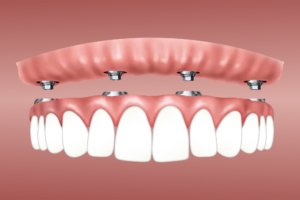
Did you know that 62 percent of people between the ages of 25 and 44 cover their mouths when they smile? You shouldn’t have to go through life feeling self-conscious about your teeth and smile. Whether you’re missing one or more teeth, there are solutions available to help give you a flawless smile.
Dental implants in Georgetown, KY are a great way to replace missing teeth in your mouth. Not only will replacing your teeth make you feel more confident, but you’ll also boost your mouth’s hygiene.
This guide will discuss the various types of dental implants and the benefits of each kind.
Endosteal Implants
The most common type of dental implant, endosteal implants require patients to have a healthy jawbone. These types of implants incorporate titanium screws that are put into the jaw as artificial roots. The implants protrude up through the gum and hold the replacement tooth.
If you go to a dentist’s office in Georgetown, they’ll evaluate whether or not these types of implants are a good option for you. You’ll need to meet the following criteria:
- Good oral and general health
- Missing one or more teeth
- Fully grown jawbone
- Healthy gum tissue
- Enough jawbone
It can take anywhere from several weeks or months to complete an endosteal implants procedure. Most of that time is spent waiting for your jaw to grow new bone and heal. Once your mouth is healed, the false teeth are placed onto the posts.
Subperiosteal Implants
If you don’t want something inserted into your jawbone or you aren’t a good candidate for endosteal implants, you might want to explore subperiosteal implants. These types of implants rest underneath your gum but on top of the bone. Through the process of osseointegration, the implants will fuse to your jawbone over a period of time.
There are two different procedures your dentist will perform if decide subperiosteal implants are the best course of action. During the first procedure, your dentist will cut open your gumline close to where you have missing teeth. This enables them to make a mold of your jawbone.
Your dentist will close the incisions with sutures until it’s time for your second procedure. The implants will get placed onto the bone during your second procedure.
There are some circumstances where subperiosteal implants are the best route for you to take. This includes:
- Wanting to avoid bone grafting
- You don’t have enough jawbone to support endosteal implants
- You want to heal faster
- You want your new teeth faster
Zygomatic Implants
While one of the least common types of dental implants in Georgetown, zygomatic implants are an option for those who don’t have a lot of jawbones left. They’re designed to replace the teeth in your upper jaw. They can replace the following:
- An entire arch of teeth
- Severely decayed or damaged teeth
- Teeth that are loose because of periodontal disease
Zygomatic implants can be used together with regular dental implants to replace lower and upper teeth. What makes zygomatic implants less common and not the preferred course of action is that they’re implanted into the cheekbone. The cheekbone is dense and provides a good anchor point for the implants.
What’s great about zygomatic implants is that they can be safely placed in a patient’s mouth when they don’t have enough jawbone to support traditional implants. Additionally, the cheekbones don’t lose bone mass as a result of periodontal disease or missing teeth.
Implant-Supported Bridge
If you’re missing several adjacent teeth, your dentist might proceed with an implant-support bridge. You won’t need an implant for each tooth you have missing. Your dentist will just need enough implants to support that bridge that holds your teeth.
After you’ve had the implants installed and they’ve healed, the doctor will put a bridge in that contains the missing teeth. You might have to remove the bridge to clean your teeth.
An implant-support bridge is a great option if you have several missing teeth in a row. It takes less time and is more affordable than replacing each tooth.
Implant-Retain Denture
A denture isn’t a permanent solution but is a suitable way for you to replace missing teeth. Implant-retain dentures are a permanent opinion. Your dentist can install multiple implants to support the dentures.
Your dentist will place several implants into your jawbone, allowing time for them to heal. They’ll then attach the dentures to your implants permanently.
Frequently Asked Questions
Choosing what type of dental implants you get is a major decision. Below are some of the most commonly asked questions about dental implants.
What Are The Benefits Of Dental Implants?
Dental implants are a great option for those who have lost one or more teeth due to gum disease or decay. They can last for many years, improving your appearance and boosting your self-confidence. You don’t have to worry about your dental implants decaying either.
How Much Do They Cost?
The cost of dental implants varies depending upon the type you get and how many. They might be covered by your dental insurance. Your dentist can provide you with different payment plan options.
How Long Do Dental Implants Last?
Dental implants aren’t susceptible to decay like natural teeth. The health of your gums is important to increase the longevity of your dental implants.
Schedule regular cleanings with your dentist to stay on top of your oral hygiene. Practice at-home dental care like routine brushing and flossing.
Find The Best Dental Implants In Georgetown, KY
It can be difficult to know which option is best when you’re looking for dental implants in Georgetown, KY. Partner with an experienced dental office like Thompson Family & Implant Dentistry.
Contact the leading dental office in Georgetown to learn more about our dental implant services.

Recent Comments